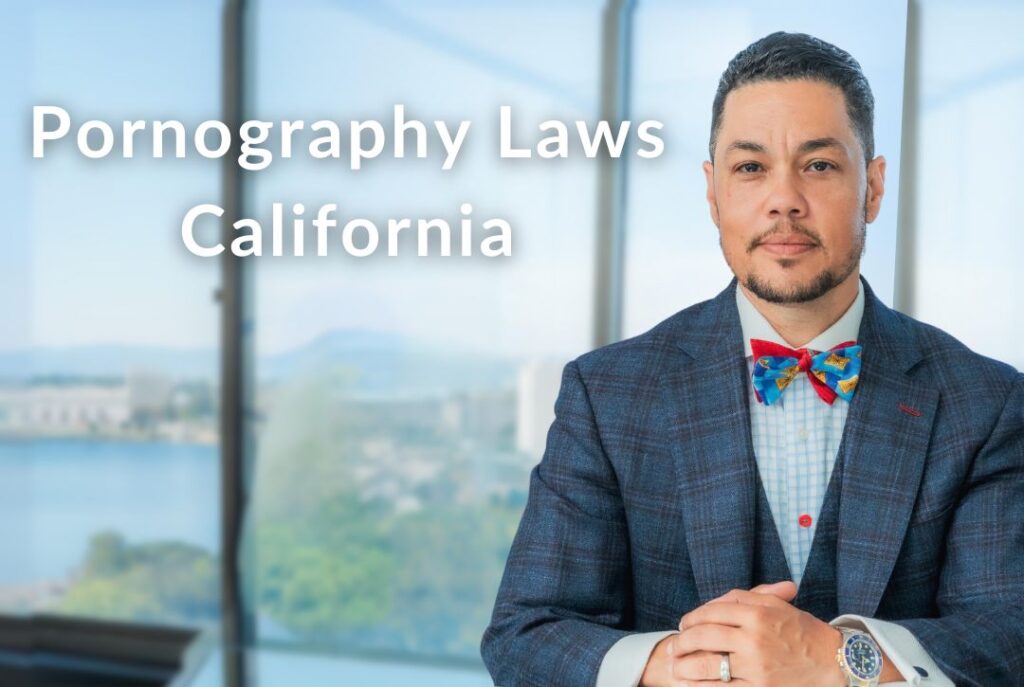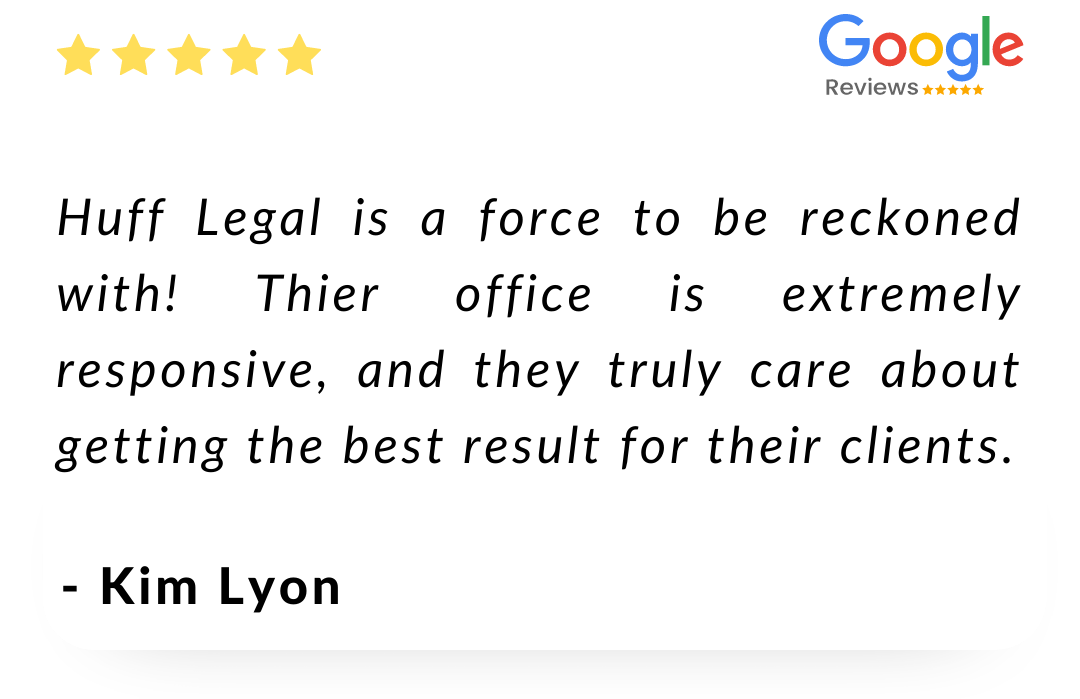Pornography Laws California: Navigating Age Verification, Obscenity, and Penal Code 311
Pornography Laws California: Navigating Age Verification, Obscenity, and Penal Code 311
Understanding and complying with pornography laws in California is essential for anyone involved in the adult entertainment industry. The state has specific regulations governing age verification, obscenity, and Penal Code 311.
Failing to follow these laws can result in severe legal consequences, including criminal charges and hefty fines. This article will break down California’s pornography laws, explain key requirements, and offer guidance on how to stay compliant.
By the end, you’ll have a clearer understanding of how to operate within the law and avoid potential pitfalls. Huff Legal is here to help you navigate these complex regulations and protect your rights.
California Child Pornography Law: Penal Code 311
California Penal Code 311 makes it a crime to send, transport, duplicate, print, exchange, advertise, or possess child pornography, as well as to hire or persuade minors to participate in making child pornography. It includes sharing or downloading images or videos on the internet, with severe penalties for those convicted.
Penalties Under §311 Of The California Penal Code
The penalties for violating Penal Code 311 are severe and can include significant prison time, hefty fines, and mandatory registration as a sex offender. Specifically, possession of child pornography can result in up to one year in county jail for a misdemeanor or up to three years in state prison for a felony.
Distribution or production of child pornography carries even harsher penalties, with potential sentences of up to eight years in state prison.
Defenses To Possession Of Child Pornography Under CPC §311.1(a)
If you are charged with possession of child pornography under CPC §311.1(a), several defenses may be available to you. One common defense is lack of knowledge, where you did not know that the material in your possession depicted minors.
Another defense is that the material was obtained through illegal search and seizure, violating your Fourth Amendment rights. Additionally, if you were falsely accused or the material was planted, your attorney can work to prove your innocence.
Request a Free Consultation
What is Considered Pornography and Obscenity in California?
In California, the definitions of pornography and obscenity are crucial for understanding what materials are legally permissible. Obscenity is determined using specific criteria established by state and federal laws.
Criteria for Determining Obscenity
Obscenity is defined by both state and federal laws, with the U.S. Supreme Court case Miller v. California establishing the Miller Test to determine whether material is obscene. The criteria include:
- Community Standards: Whether the average person, applying contemporary community standards, would find that the material appeals to the prurient interest.
- Patently Offensive: Whether the material depicts or describes sexual conduct in a patently offensive way.
- Lack of Value: Whether the material lacks serious literary, artistic, political, or scientific value when taken as a whole.
Age Verification and Consent Requirements for Pornography in California
California has stringent laws to protect minors from exploitation in pornography and to ensure that adult performers provide informed consent. These regulations are crucial for maintaining legal compliance in the adult entertainment industry.
Age Verification and Minors
California law mandates strict age verification procedures to ensure that individuals depicted in pornography are of legal age. It includes obtaining and maintaining valid identification records for all performers and conducting regular age verification checks. Failure to comply with these requirements can result in severe legal consequences, including criminal charges and significant penalties.
Requirements for Age Verification
Producers must keep detailed records of age verification for all performers, including copies of government-issued IDs. Regular checks and audits are necessary to ensure ongoing compliance. These records must be readily available for inspection by authorities to prove that all performers are legally of age.
Consent Requirements for Adult Performers
In California, adult performers must provide voluntary and informed consent before engaging in any explicit acts. It involves signing contracts or agreements that outline the nature of the work and provide written consent. These documents serve as proof of the performers’ willingness to participate and help protect against legal claims of coercion or exploitation.
Distribution and Licensing of Adult Materials in California
In California, the distribution and licensing of adult materials are subject to specific regulations and requirements. Failing to comply with these laws can result in legal consequences for individuals and businesses involved in the adult entertainment industry.
Legality of Distributing Pornography
In California, distributing pornography is legal as long as it does not involve minors and complies with state obscenity laws. However, distributing obscene material that lacks serious literary, artistic, political, or scientific value can lead to criminal charges.
It is crucial to ensure that all distributed materials meet the legal standards to avoid severe penalties.
Licensing Requirements and Age Verification
Producers and distributors of adult materials must adhere to stringent licensing requirements and age verification procedures. It includes obtaining and maintaining valid identification records for all performers and conducting regular age verification checks. Failure to comply with these requirements can result in significant legal consequences, including fines and imprisonment.

As Seen On












Internet and Online Regulations of Pornography
With the proliferation of online platforms, California has established specific regulations governing the distribution of and access to pornography on the internet. These regulations aim to protect minors and combat the exploitation of individuals in the production and distribution of adult content.
Human Trafficking and Pornography
California Penal Code Section 236.1 addresses the crime of human trafficking, which can intersect with the production and distribution of pornography. Online platforms and website operators must be vigilant in preventing the exploitation of individuals and ensuring that all content is produced and distributed consensually.
Engaging in or facilitating human trafficking can result in severe criminal penalties.
Restrictions for Registered Sex Offenders
Under California Penal Code Section 290.4, registered sex offenders are subject to specific restrictions and obligations regarding their internet usage. It includes disclosing their internet identifiers and complying with any restrictions imposed by the court or their probation conditions.
Website owners and online platforms must be aware of these regulations and take appropriate measures to protect users from potential risks associated with interactions involving registered sex offenders.
Penalties and Consequences for Violating Penal Code 311
Violating California’s child pornography laws under Penal Code 311 can lead to severe legal consequences, including lengthy prison sentences, substantial fines, and mandatory registration as a sex offender. The specific penalties depend on the nature and severity of the offense.
Legal Consequences and Potential Criminal Charges
Individuals who engage in the production, distribution, or possession of child pornography can face felony charges under Penal Code 311. Convictions can result in imprisonment for up to eight years, along with significant fines. Other potential criminal charges related to child pornography include:
- Employing or coercing a minor to participate in the production of pornography
- Advertising or distributing child pornography
- Possessing child pornography with the intent to distribute
Penalties, Fines, and the Importance of Consulting a Criminal Defense Attorney
In addition to imprisonment, individuals convicted of violating Penal Code 311 may face substantial fines, ranging from thousands to millions of dollars, depending on the circumstances of the case. They may also be subject to probation or supervised release, which imposes strict conditions on their behavior and requires regular check-ins with probation officers.
First Amendment Considerations and Free Speech
The regulation of pornography in California involves a delicate balance between protecting public welfare and safeguarding individuals’ First Amendment rights to freedom of speech and expression. The tension often gives rise to legal debates and constitutional challenges.
The Tension Between Pornography Laws and First Amendment Rights
Pornography laws in California aim to protect society from the potential harms of explicit materials, such as the exploitation of minors and the spread of obscene content. However, these regulations must be carefully crafted to avoid infringing upon individuals’ First Amendment rights. The First Amendment protects freedom of speech and expression, which can include certain forms of adult entertainment and pornography.
Constitutional Challenges to Obscenity Laws
Obscenity laws in California must meet specific constitutional standards to withstand legal challenges based on the First Amendment. The landmark case Miller v. California (1973) established the Miller Test, which provides criteria for determining whether material is obscene and thus not protected by the First Amendment.
The test considers factors such as community standards, the offensiveness of the content, and the lack of serious artistic, literary, political, or scientific value.
Several notable Supreme Court cases, such as New York v. Ferber (1982) and Ashcroft v. Free Speech Coalition (2002), have further shaped the legal landscape surrounding pornography and the First Amendment. These cases have established that child pornography is not protected by the First Amendment due to its inherent harm to minors while also striking down overly broad restrictions on virtual or computer-generated child pornography.
What Clients Say About Us





Schedule Your Free Consultation Today
Sexting Laws in California
Sexting, or the sharing of sexually explicit messages, images, or videos through electronic devices, is subject to specific laws in California. While consenting adults can engage in sexting legally, the involvement of minors or the non-consensual distribution of private images can lead to serious legal consequences.
Legality of Sexting Among Consenting Adults
In California, sexting between consenting adults is generally legal. Adults have the right to share intimate content with each other, provided that all parties involved are willing participants and the material does not cross the line into obscenity or involve any illegal activities. However, it is important to be mindful of the potential risks associated with sexting, such as the unintended distribution of private content or the violation of trust within a relationship.
Sexting With Minors and Illegal Distribution of Private Images
If you alter, destroy, conceal, or tamper with evidence related to the murder with the intent to hinder a
Sexting with minors is strictly prohibited in California, regardless of whether the minor initiates the conversation or shares the content voluntarily. Engaging in sexting with someone under the age of 18 can lead to charges of child pornography, which carry severe penalties, including imprisonment and mandatory registration as a sex offender.
Additionally, California has laws that criminalize the non-consensual distribution of private sexual images, often referred to as “revenge porn.” Under Penal Code Section 647(j)(4), it is illegal to intentionally distribute intimate photos or videos of another person without their consent and with the intent to cause emotional distress. Violating this law can result in criminal charges, fines, and even jail time.
the investigation or prosecution, you can be charged with tampering with evidence. This offense involves interfering with the proper administration of justice.
Seeking Legal Assistance from a Criminal Defense Attorney at Huff Legal
At Huff Legal, our experienced attorneys are dedicated to protecting your rights and providing you with the strong defense you need. We understand the intricacies of pornography laws in California and have a proven track record of successfully representing clients in these sensitive cases.
If you or someone you know has been accused of violating California’s pornography laws, don’t hesitate to contact Huff Legal for a confidential consultation. Our knowledgeable team will listen to your story, explain your legal options, and develop a tailored defense strategy to fight for the best possible outcome in your case.
With Huff Legal by your side, you can feel confident that your rights and freedom are in capable hands.
FAQ
Is viewing CP illegal in California?
Yes, viewing child pornography (CP) is illegal in California under Penal Code 311. Knowingly possessing, viewing, or controlling any material that depicts a minor engaging in sexual conduct is a crime. Penalties for viewing CP can include fines, imprisonment, and mandatory registration as a sex offender.
Is viewing the same as possessing?
In California, viewing child pornography is considered a form of possession. The law does not differentiate between actively downloading or saving CP and simply viewing it online. Accessing and viewing CP is sufficient to establish possession and can lead to criminal charges.
How do people get caught viewing CP?
Law enforcement agencies use various methods to detect and investigate individuals who view child pornography. This can include monitoring online activity, tracking IP addresses, and conducting undercover operations. Additionally, tips from the public, reports from internet service providers, and evidence found during other investigations can lead to the discovery of CP viewing.
Is viewing the same as possessing?
In California, pornography itself is not a crime if it involves consenting adults and does not meet the criteria for obscenity. However, certain acts related to pornography can be illegal, such as distributing obscene materials, producing or possessing child pornography, or violating age verification and record-keeping requirements. It is important to understand and comply with the specific laws and regulations surrounding pornography in California.
LET HUFF HELP YOU
As a former police officer and patrol supervisor and his time spent as a United States District Court Judicial Law Clerk to the Chief Judge, Attorney Huff knows how to navigate all levels of the complex criminal law system. We also have more than 55 years of combined experience dealing with various complex criminal legal matters and have helped just over 1,500 clients over the past few years.
Why Huff Is Your Best Option For Criminal Defense
55+ Years of Combined Experience
At Huff Legal, we have more than 55 years of combined experience dealing with complex criminal legal matters, which can oftentimes be quite challenging. In order to get the outcome you deserve, you need a team of experienced attorneys on your side, who can help you navigate the legal system, so you can move past this situation and focus on the life ahead of you!
5 Star Rating on Google
We have a proven track record of success and are dedicated to our clients’ best interests. If you’re looking for a law firm that will always have your back, look no further than Huff Legal. Just have a look at some of our amazing client reviews over here!
1,500+ Happy Clients
Over the years, we’ve had the privilege of helping over 1,500 clients with their legal needs. When you work with us, you can be confident that you’re getting the best possible legal representation. We’re proud of our track record and our reputation for being a firm that delivers great results.
What Our Clients Say About Us


Sheila


Abel Resendiz


Manuela Frazier


Doris
Contact Huff Today
Request A Free Consultation
* Free consultations only available for Criminal Defense


In legal terms, an accessory to murder refers to an individual who aids, abets, or otherwise assists in committing a murder. While the specifics may vary across jurisdictions, California law treats accessories to murder as active participants in the crime, holding them accountable for their actions. In San Francisco Bay Area, there are two primary types of accessories to murder:
In the event that you find yourself in the Bay Area facing accessory to murder charges, you should first call a criminal defense attorney who can help you defend your rights and lessen the effects of the investigation. Contact an attorney at Huff Legal as soon as possible following your arrest. An accomplished attorney from Huff Legal will thoroughly examine your case, who will then develop a strategy and build a defense.
